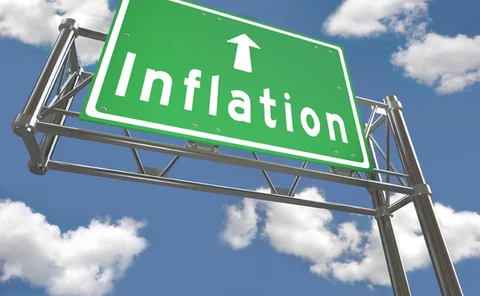Balance sheet
Fed makes first 50bp rate hike in decades
Central bank under pressure to curb inflation without crashing the economy
The international effort to manage NBFI risks: where do we stand?
The Covid-19 shock demonstrated more needs to be done to address stability risks posed by the NBFI sector. Maurizio Trapanese details progress made during the Italian G20 presidency as well as outstanding macro-prudential issues
Stablecoins revive US narrow banking debate
Legislators suggest simplified bank rules to regulate issuers, but Federal Reserve is cautious
Canada and New Zealand step up rate hikes
Both central banks raise rates by 50bp in bid to “head off” rising inflation expectations
Fed mulls tightening on scale not seen for decades
FOMC members now contemplating 50bp rate hikes and major asset sales
Fed’s asset selloff may start in May, Brainard says
FOMC minutes show consensus for “balance sheet runoff at a coming meeting”
Is a bond market crisis imminent?
Central banks need careful action and a good dose of luck if they are to avoid financial instability
Central banks usually transfer profits to governments
But many central bank respondents did not share profits in the last financial year
US inflation continues ascent
CPI inflation reached new high of 7.9% in February
Digital money and central banks
Central banks must reflect on the monetary policy, regulatory and financial stability implications from crypto assets, stablecoins and CBDCs to stay relevant in the digital age of money
Powell says he expects March rate hike
Fed chair says FOMC is discussing agreement on shrinking balance sheet
Half of fintech benchmarks respondents use AI/ML tools
Richer nations more likely to use artificial intelligence
Fed’s Brainard backs series of rate hikes followed by asset runoff
Governor says economy is responding appropriately to Fed communications and incoming data
FOMC’s January minutes hint at policy actions and inflation fears
Committee signals determination to end asset purchases in March and raise the funds rate
BoE hikes main rate and begins shrinking balance sheet
UK Treasury unveils parallel measures to cushion impact of surging energy prices
Fed signals time will be right for rate hike ‘soon’
QE set to end in March, with balance sheet to start shrinking after rates rise
Fed keeps investors guessing on speed and endpoint of tightening
Investors generally agree the Fed will tighten policy, but how much and when are unclear
Effective market operations in a modern central bank
Oliver Wyman’s Paul Fisher and Oliver Wünsch explain how central banks can successfully organise and manage their market operations departments with a public sector workforce, and when their objectives are not dictated by financial returns.
Over half of central banks modified collateral policies during the pandemic
Most reduced haircuts on banks’ collateral
BoJ ends some emergency measures
Central bank offers more funding for loans to small businesses, but halts some asset purchases
Tackling surging inflation
Central banks around the world are grappling with rapid price rises, with some taking very different routes to one another
How Turkey’s president created chaos in economic policy-making
Observers allege presidential domination of the central bank, unauthorised FX transactions and untrustworthy statistics
Protecting international standard-setting despite the resurgence of politics
Andreas Dombret, global senior adviser, and Oliver Wünsch, partner, at Oliver Wyman, describe the importance of international standard-setting amid increasing political interference.
Final frontier? Japan after the Kuroda experiment
The Bank of Japan has pushed monetary easing close to its limit, yet inflation is barely above zero. What happens now?






















